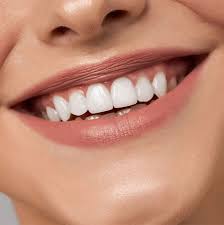For those exploring options to brighten their smile, many wonder, are there any natural alternatives to nano whitening that can offer effective results without synthetic ingredients? While Nano Teeth Whitening uses advanced technology like nano-hydroxyapatite for enamel-safe whitening, some individuals prefer more natural approaches due to sensitivity concerns, lifestyle preferences, or a desire for chemical-free routines. Fortunately, there are several natural methods that can gently lift surface stains and support overall oral health—though they may not match the rapid results of nano whitening.
- Natural alternatives appeal to those avoiding synthetic chemicals
- They are often safer for daily or long-term use
- Results may be more gradual compared to nano-based options
- Great for people with ultra-sensitive teeth or gums
- Can be easily integrated into everyday oral care
Natural doesn’t always mean weak—it just requires consistency and patience to see visible improvement.
Common Natural Whitening Remedies at Home:
If you’re looking for everyday ingredients to help whiten your teeth, some kitchen staples and herbal remedies have been used for decades. While these alternatives don’t contain nano-particles, they still support a cleaner, whiter smile.
- Baking soda: A mild abrasive that can scrub away surface stains
- Hydrogen peroxide: When diluted properly, it can act as a natural bleach
- Oil pulling (e.g., coconut oil): Believed to reduce plaque and yellowing
- Activated charcoal: Known for absorbing toxins and lifting stains
- Strawberries and pineapple enzymes: Contain malic acid which helps whiten enamel
These options are accessible and affordable, though they should be used cautiously and not over-applied to avoid enamel wear.
Pros and Cons of Natural Whitening Options:
Before switching fully to natural whitening solutions, it’s important to understand the benefits and limitations compared to nano whitening. While natural alternatives may seem healthier, they aren’t without risks.
Pros
- No artificial chemicals or additives
- Minimal cost and easy to find
- Gentle on sensitive gums (when used properly)
- Can be used alongside conventional toothpaste
Cons
- Often slower results than nano-based products
- Overuse of abrasives can harm enamel
- Not always clinically tested or dentist-recommended
- Effectiveness varies widely from person to person
For long-term safety and results, balance is key—natural methods should complement rather than replace a solid oral care routine.
Combining Natural Methods with Nano Whitening:
You don’t have to choose between natural remedies and modern science. In fact, combining natural alternatives with nano whitening can be the ideal way to enhance and maintain a radiant smile while minimizing risks.
- Use natural methods like oil pulling in the morning and nano paste at night
- Limit abrasive ingredients like baking soda to once or twice a week
- Choose nano products that also include herbal or plant-based ingredients
- Use fluoride-free natural rinses to support oral hygiene
- Balance frequency to avoid enamel wear and sensitivity
This hybrid approach brings together the best of both worlds—nature’s simplicity with science’s efficiency.
Final Thoughts: Nature vs. Nano
So, are there any natural alternatives to nano whitening? Absolutely, and they can be effective with the right expectations and consistency. While Nano Teeth Whitening Treatment offers cutting-edge results in less time, natural alternatives provide a gentler, chemical-free path to a brighter smile.
- Baking soda, peroxide, and charcoal are common DIY options
- Herbal solutions like neem and turmeric offer holistic benefits
- Results may take longer and be more subtle than nano products
- Ideal for those with ultra-sensitive teeth or clean lifestyle choices
- Can be combined with nano methods for optimal effect
Ultimately, the best whitening method is the one that fits your needs, lifestyle, and values—whether it’s powered by plants or by nanotechnology.

